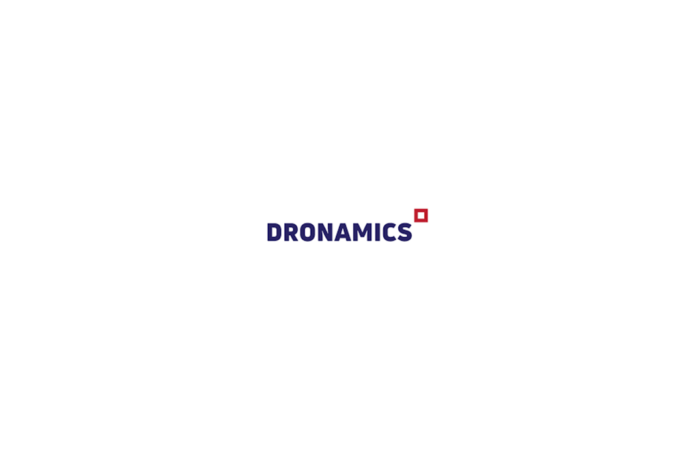Bulgaria-based, Dronamics is building “The Black Swan” (TBS), a new fixed-wing cargo drone. It is remotely piloted, fuel-efficient, and suitable for a longer ranges (think cross-country or intercity transport between main gateways or warehouses, “anything >300km is not appropriate for us”) & higher load factors than electric solutions. “Most small delivery drones are an attempt to solve the last-mile problem; they’re the bike messenger, TBS is the cross-country truck”. With a wingspan of 16m & fuselage of 8m, TBS can carry 350kg in a 3.5cbm hold (same stats as a small delivery van) (specifically designed to fit cargo pallets, with temperature-control being developed), at 125kmh for distances up to 2,500km (that’s all of Europe), for >€5/kg (said to be 50% cheaper than existing same-day air cargo; partially due to TBS’s use of carbon fiber materials) (it is also said to be 80% faster & produce 60% fewer emissions than road transport). Powering the TVS is a single-propeller Rotax engine built by Austria-based BRP-Rotax (owned by Bombardier Recreational Products), which runs on 100% sustainable aviation fuel provided by UK-based Zero Petroleum. Note, Dronamics “sells capacity, not an aircraft” & sees itself as an all-in-one solution (for the middle-mile market), with i) TBS, ii) fully mobile control & cargo systems & iii) a growing network of droneports. The latter merely require paved or unpaved airstrips of approx. 400m length, so they can easily be installed at unused airfields, airports, seaports, logistic centers & factory lots. This means that Dronamics can reach destinations that traditional aircraft can’t, allowing for easy integration into supply chains. So where does Dronamics stand? soon after brothers Svilen Rangelov (CEO) & Konstantin Rangelov (CTO) founded the firm in 2014, they had built a ¼ scale TBS & by Q1 2020 had a full-scale TBS clocking test flight hours in Bulgaria. Towards the end of 2020, Dronamics signed agreements with 5 airports in Belgium, Croatia, Italy, Finland & Sweden to allow the startup to deploy equipment. In July 2021, Dronamics celebrated a major success by partnering with DHL, reaching an agreement with <40 airports in 13 countries across Europe. In October 2021, the startup chose Malta as a base for its future operations. Less than a year later (ahead of its competitors) Dronamics announced that it had become the first company in Europe to obtain a Light UAS Operator Certificate (LUC) for middle-mile cargo operations, allowing it to start commercial operations across Europe after concluding the flight-testing program (note: it obtained the license from the Transport Malta Civil Aviation Directorate). With the new funding, Dronamics aims to build a series of TBS’s (which will be manufactured by partners in Germany & Austria) and to begin commercial operations for cross-border & intercity flights “in the Mediterranean” aka “Phase 1”. The maiden route will likely be “over water in Greece” in partnership with global logistics company Hellmann “connecting Greek islands by cargo drone is one of Hellmann’s immediate ambitions”, “initially, we want to start with lower-risk routes; as we gain acceptance & confidence, we’ll fly over land as well”. “Phase 2” countries include France, the UK (e.g. Dronamics is part of the CAELUS project, working with a consortium to build out a medical supply drone network for NHS Scotland), Iceland & Scandinavia. “Phase 3” is then rest of Europe. Ps: Hellman also sees a lot of potential for using Dronamics in Africa; case in point; “the recent investment by SDF will lead to the creation of a Dronamics MENA hub out of the UAE”. Good progress into a large TAM? Roland Berger certainly think cargo drones are a potential gamechanger in the logistics industry. As a trailblazer in the field (which has won many awards), Dronamics directly ~competes against Natilus (US) (>€1m) (said to be larger, with a blended wing body entailing probably quite high certification & production costs) as well as AirWhiteWhale (CN & CA) (<€20m), and more broadly against cargo VTOLs (all more suitable for shorter ranges) like of Skyports (UK) (€32m), Gadfin (IL) (€7m), H3 Dynamics (FR) (€32m), MightyFly (US) (<€5m), Elroy Air (US) (€52m), Pyka (US) (€450m) & Beta Technologies (US) (<€0.8b). Keep your eyes peeled for a (large) Series A soon! <Sources: techcrunch.com, eu-startups.com, intellinews.com, aircargonext.com, trendingtopics.eu, uktech.news, ff.co, usine-digitale.fr, bbc.com, siliconcanals.com, dronedj.com, aviationtoday.com, businessinsider.com, spectrum.ieee.org>


